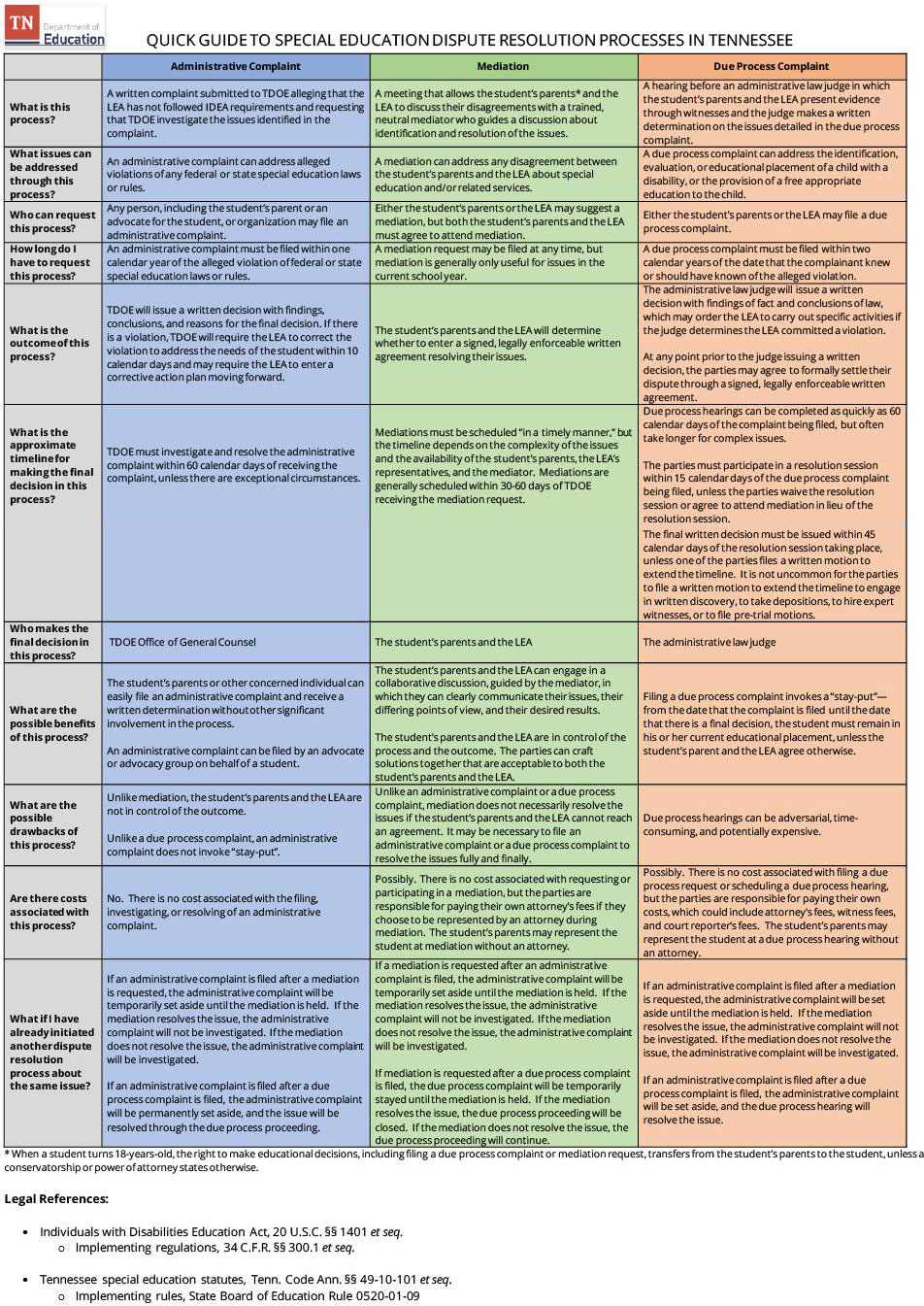For families with children receiving special education services, ensuring that their Individualized Education Program (IEP) is appropriately implemented and supported is of paramount importance. Under the protection of the Individuals with Disabilities Education Act (IDEA), children with disabilities have the right to receive an education that meets their unique needs. In Tennessee, specific dispute resolution processes are available to address IEP concerns when attempts to resolve issues at the school level prove unsuccessful. The image below provides a detailed look at the dispute resolution processes presently available in Tennessee.
- Attempting to Resolve IEP Issues at the School Level
Before engaging in more formal dispute resolution processes, it is highly recommended to try resolving IEP concerns at the school level whenever possible. This approach allows for open communication between parents, teachers, and school administrators, fostering collaboration to find mutually agreeable solutions. Schools are generally willing to work with parents to address IEP concerns to ensure the child’s educational needs are met effectively.
- Filing an Administrative Complaint
If resolution at the school level is not achieved, the first formal step in the dispute resolution process is filing an administrative complaint. Parents can file a complaint with the Tennessee Department of Education, outlining the specific issues related to their child’s IEP. The complaint will then be investigated, and appropriate actions will be taken to address the concerns.
- Mediation
Mediation is an alternative dispute resolution process that involves a neutral third party to facilitate communication between parents and school officials. The mediator’s role is to help both parties reach an agreement that satisfies the child’s educational needs. This process is voluntary, and both parties must agree to participate. Mediation offers a less adversarial approach, promoting collaboration and understanding between parents and the school system.
- Requesting a Due Process Hearing
If efforts through administrative complaint and mediation fail to resolve the issues, parents have the option to request a due process hearing. A due process hearing is a more formal legal proceeding where an impartial hearing officer reviews the evidence presented by both parties and makes a binding decision to resolve the dispute. This option should be pursued only as a last resort, as it can be time-consuming and emotionally draining, as well as costly, if you retain a special education attorney to represent your family.
Engaging in the due process hearing can be complex and overwhelming, considering the legalities involved. Therefore, it is strongly recommended that parents seek the assistance of an experienced special education attorney. An attorney well-versed in IDEA and Tennessee’s special education laws can provide invaluable guidance throughout the dispute resolution process. They can help prepare necessary documentation, present evidence effectively, and ensure that the child’s rights are protected.
Time Sensitivity and Concurrent Filing
It is crucial to act promptly when facing IEP disputes. Any concerns should be addressed without delay after decisions are made or complaints are left unresolved at the school level. Additionally, if parents decide to file a complaint with the Office of Civil Rights, it is important to do so concurrently with the formal dispute resolution process to avoid missing any deadlines.
You have the right to ensure that your child receives the appropriate educational services they deserve. When issues arise with your child’s IEP in Tennessee, exploring the dispute resolution options provided by IDEA is essential. Attempting resolution at the school level is the first step, followed by filing an administrative complaint, exploring mediation, and, if necessary, requesting a due process hearing. However, due process should be seen as a last resort, and seeking legal representation is highly recommended to navigate this process effectively. By being proactive and seeking assistance from an attorney, you can better advocate for your child’s rights and secure the appropriate support they need to thrive academically and personally.

